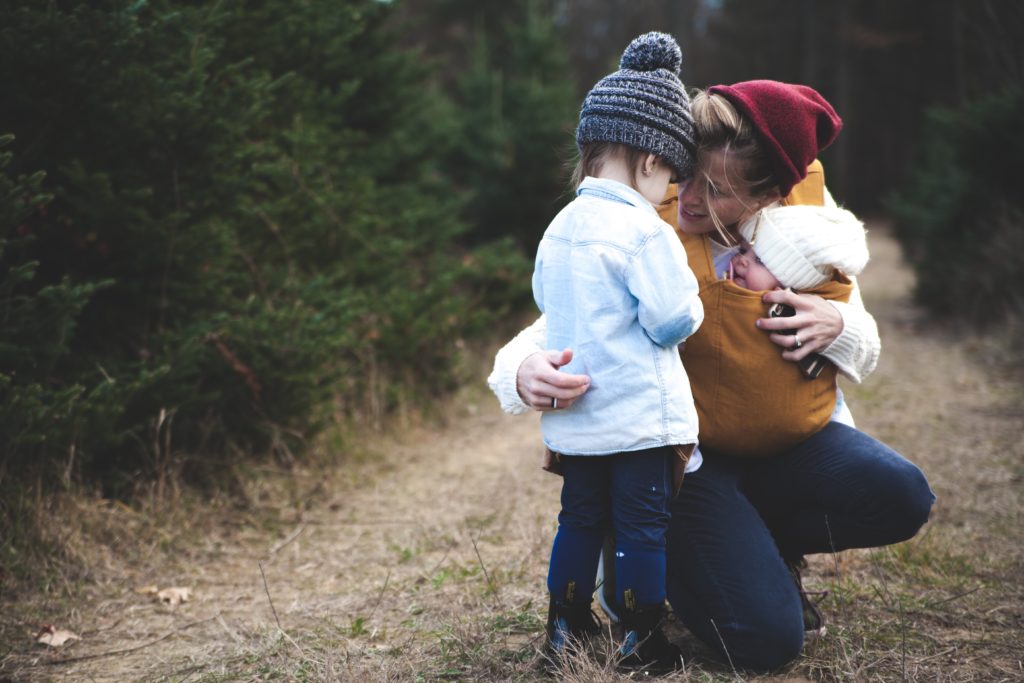
It’s 27 days until Christmas. Maybe you’re starting to feel the stress of the holidays. Or maybe money’s tight. Maybe you’re not sleeping well. Maybe you’re dealing with health issues, or with the health issues of a loved one. Maybe you’re just plain TIRED, and when your 3 three year old has her seventh tantrum of the day, while you may want to respond with patience and understanding, your first knee-jerk thought might well be, “Are you freaking KIDDING ME??”
Now matter how committed you may be to parenting gently, and no matter how much you love your kids, you’re still a human, dealing with your own human emotions.
Here are a few things to help get you grounded again when you’re about to lose it.
1. Breathe. It’s said so often that it feels like its a cliche, but it’s not. Consciously stopping to breathe is the very best first line of defense against any emotionally charged situation, bar none. It sends oxygen to your body, calms your heart rate, lowers your blood pressure, and reduces the flight or fight response. Before you speak, before you do ANYTHING….. breathe. And then:
2. Slow down. I love this one because it seems so counter intuitive. When everything’s crazy, and you’re in a hurry, and you’re rushing around, and everything’s going wrong… slowing down seems like the least helpful thing you can do. But it’s essential to keeping your cool. Slow down, take a step a back, and regroup. You’ll be more productive, you’ll make less mistakes, and you’ll be much less likely to say things you’ll regret.
3. Focus on the current moment only. We are so, so good at stressing out about the past, and worrying about the future. So, so good! The problem is, it takes us out of the current moment, and makes it that much harder to respond with patience and calm. Breathe, slow down, and focus on making THIS moment a kind one. Just this one.
4. Put yourself in your child’s shoes. Empathy is one of the greatest tools we have when it comes to relating to other people, our children included. How is she feeling right now? What is he going through? It is HARD to be a toddler (and a preschooler and a middle-schooler and a teenager) It’s hard to be a human. Life can be frustrating. Remembering that your child is having a hard time with something goes a long way toward making it more about the person, and less about the behavior. It’s not personal. They’re not trying to annoy you. Rather, they’re trying to communicate in the only way they know how at the moment. Remember a time you felt the same way, and treat your child the way you wish you’d been treated. They need your compassion, not your anger.
5. Keep your perspective. AKA don’t sweat the small stuff (and it’s all small stuff.) In the moment, when big feelings are rampant, and people are triggered, and the situation is escalated, it often feels like the most catastrophic issue in the world. Except… it’s not. It’s not even close. In the grand scheme of things, this moment is but a little blip. Spilled milk, Sharpie on the wall, meltdowns over getting the wrong colored cup, sandwiches shoved in the DVD player…. I promise you it won’t matter later. It won’t. And nothing – seriously NOTHING – is more important than that little human standing before you, waiting to see how you’re going to react.
6. Apologize when it’s warranted. You’re going to have your not-so-gentle moments. That’s a given. Sometimes, even if you do everything “right”. Even if you breathe, and slow down, and take a step back, and empathize and keep your perspective… your frustration still comes out sideways, and you find yourself snapping or yelling, or otherwise responding in a way you regret. The positive part? Now you have an opportunity to model genuine remorse. Apologizing to your children shows them 1) That you, too, are human. 2) That it’s okay to mess up sometimes, and 3) The steps to take to make it right. And when apologies are freely and honestly given, forgiveness is a natural by-product. I can’t even think of a time when I’ve apologized to my kids and they haven’t graciously and authentically forgiven me.
The concepts of positive parenting are simple. Not always EASY, but simple. I think when it comes right down to it, the answer is that your kids want what all of us want. To be heard. To be seen. Forget the behavior for a second. Forget the frustration or the anger or the annoyance, and really SEE your child for the unique and complex and multifaceted perfectly imperfect human that they are. And then act accordingly.








